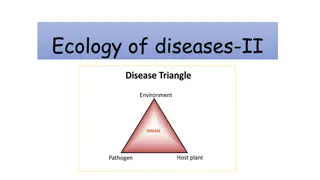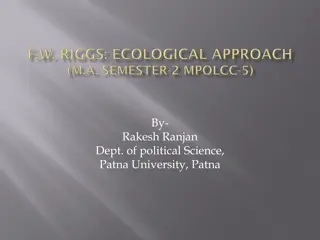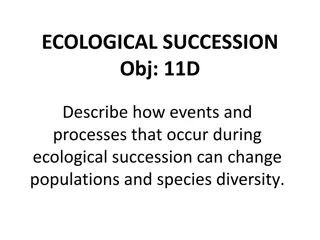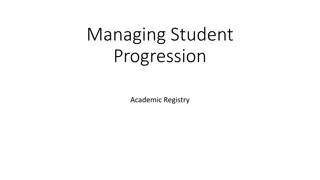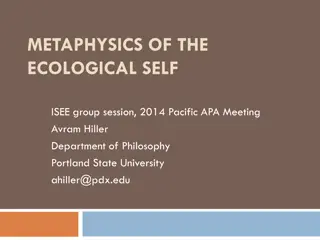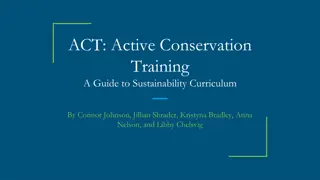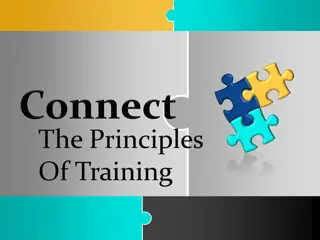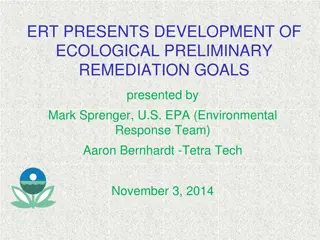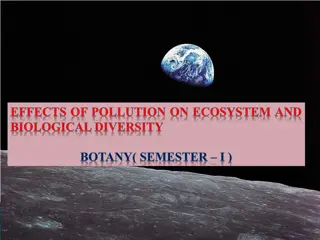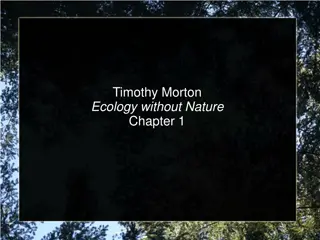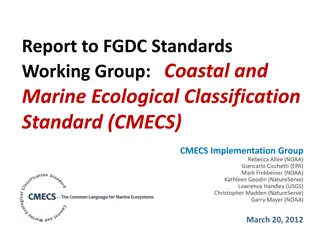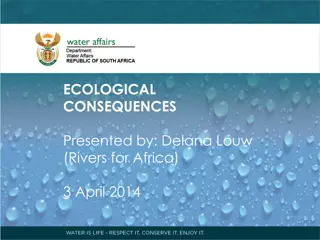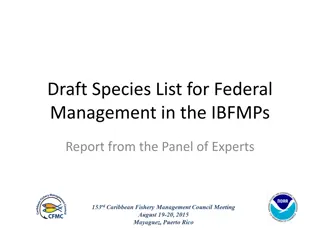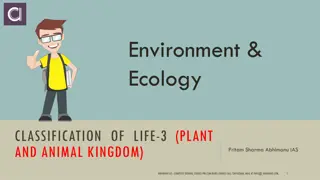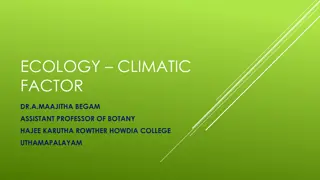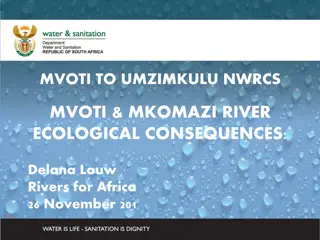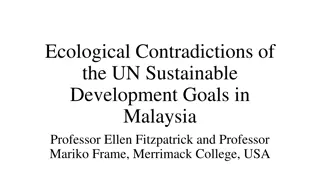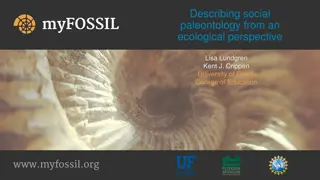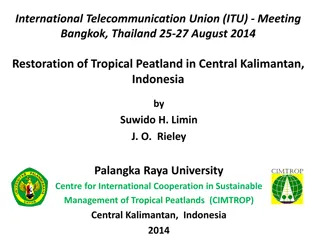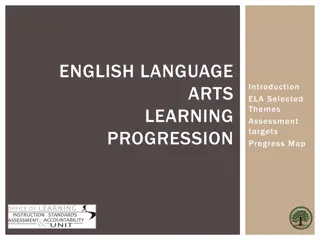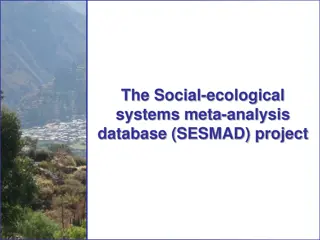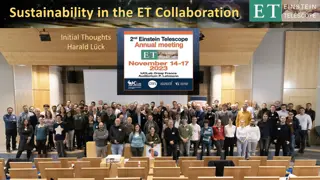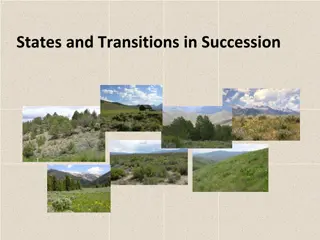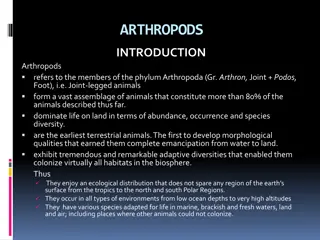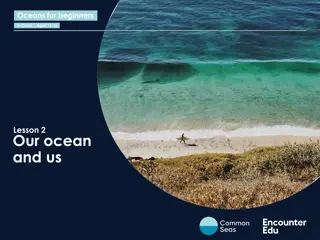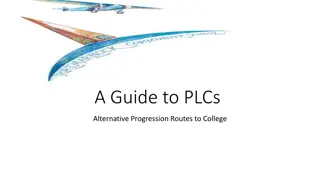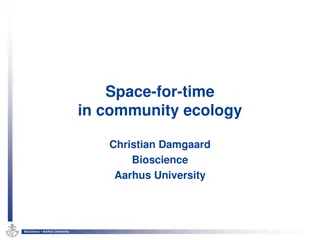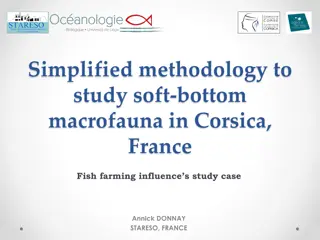Are we making progress?
The progression of learners in OpenStudio across a qualification through interactions and activities. The project aims to understand how engagement, communication, collaboration, knowledge, and learning skills evolve. The agenda includes discussions on traditional studio progression, factors influen
0 views • 24 slides
Enhancing Curriculum Design for Progression in Learning
This conversation aims to explore effective curriculum design approaches that promote learner progression and success while addressing barriers. Insights shared will influence future projects and initiatives, driving meaningful development towards educational objectives. Key considerations include s
1 views • 11 slides
Epistemic Progression in Learning: A Humanities Perspective
Exploring the concept of epistemic progression and its importance in education, this content delves into Basil Bernstein's theories on knowledge structure, trends in history education, and the role of procedural knowledge in fostering progression in disciplines like History.
1 views • 10 slides
Overview of Ecological Studies in Epidemiology
Ecological studies in epidemiology involve studying groups of individuals at a population level to examine the correlation between exposure and disease occurrence. While cost-effective and useful for generating hypotheses, ecological studies have limitations, such as the inability to control for con
3 views • 21 slides
Ecosystems and Disease Ecology
Explore the diverse types of ecosystems, including autochthonous, anthropurgic, and synanthropic ecosystems, and their impact on disease ecology. Learn about biotopes, biocenosis, ecological mosaics, and ecological interfaces, and discover how infectious diseases can be transmitted across these inte
0 views • 10 slides
Multiple Sclerosis: Symptoms, Progression, and Treatment Options
Explore the cellular processes, symptoms, disease progression, and treatment options associated with Multiple Sclerosis (MS). Discover how MS, an autoimmune disease, affects the nervous system leading to a range of symptoms. Learn about the clinical progression of MS and how the immune system causes
0 views • 12 slides
The Ecological Approach in Comparative Public Administration
Fred W. Riggs, a proponent of the Ecological Approach in Public Administration, emphasized the importance of understanding the interaction between administrative systems and their external surroundings. He introduced the Fused-Prismatic-Diffracted Model to explore the unique contexts of developing c
1 views • 21 slides
Ecological Succession and Its Impacts
Ecological succession is the orderly process of change in an ecosystem, where one community replaces another until a stable climax is reached. This progression affects populations and species diversity. The process involves primary and secondary succession, with events like tornadoes, hurricanes, an
0 views • 23 slides
Managing Student Progression in Academic Registry
This content provides detailed information on managing student progression in an academic registry, covering topics such as academic framework, boards of examiners, mark finalization, module verification, referral requirements, personal tutorial assessments, student progression criteria, assessment
0 views • 15 slides
The Relationship Between Ecology and Business
Ecology and business have a complex relationship where human activities impact the ecological environment, and in turn, the environment influences our quality of life. Maintaining ecological balance is crucial for sustainable development, and businesses play a significant role in ensuring environmen
0 views • 19 slides
Metaphysics of the Ecological Self and Monism in Philosophy
The discussion explores the concept of the ecological self in deep ecology and the interplay with contemporary analytic philosophies like monism. It proposes a moderate view that acknowledges internal dependence relations between humans and the environment, grounding normative claims about human-env
2 views • 29 slides
Interactive Sustainability Curriculum for Conservation Training
Engage students in activities focusing on energy, agriculture, waste management, animals and ecosystems, consumption, and other sustainability topics. Lessons include understanding energy sources, land degradation, waste sorting, nature walks, tote bag making, and ecological footprints. Encourage cr
0 views • 7 slides
Principles of Training: Overload, Specificity, and Progression
Principles of training encompass overload, specificity, and progression. Overload requires doing more than usual, specificity involves tailored activities, and progression ensures gradual advancement. These principles are vital for improving fitness levels safely and effectively, emphasizing the nee
8 views • 17 slides
Eco-Remediation Goals Development Training Overview
This presentation by Mark Sprenger from the U.S. EPA discusses the development of Ecological Preliminary Remediation Goals (PRGs). It covers the process steps, assumptions, risk information activities, and resources related to ecological risk assessment within the EPA's programs. The training module
0 views • 53 slides
Enhancing Ecological Sustainability through Gamified Machine Learning
Improving human-computer interactions with gamification can help understand ecological sustainability better by parameterizing complex models. Allometric Trophic Network models analyze energy flow and biomass dynamics, but face challenges in parameterization. The Convergence Game in World of Balance
0 views • 12 slides
Biological Diversity and Ecological Organization
Exploring the intricate balance of flora and fauna on our planet, this content delves into the vast array of plant and animal species coexisting in various ecosystems. It discusses the significance of biodiversity, the interaction of biotic and abiotic components in ecological systems, and the ecolo
0 views • 41 slides
Rethinking Ecology: Nature's Role in Human Society
Timothy Morton's "Ecology without Nature" challenges the traditional concept of "nature" and its interference with ecological progress in society. Through thought-provoking narratives and philosophical perspectives, Morton argues for a reevaluation of our relationship with the environment, emphasizi
3 views • 23 slides
Coastal and Marine Ecological Classification Standard (CMECS) Implementation Progress
The report highlights the development, timeline, objectives, and importance of the Coastal and Marine Ecological Classification Standard (CMECS) along with its implementation progress. It discusses the need for a national standard for classifying coastal and marine habitats, the objectives of CMECS,
1 views • 38 slides
Ecological Consequences in Ecosystem Management
Delana Louw from Rivers for Africa presented on the ecological consequences of various scenarios in ecosystem management. The process involves delineating units of analysis, stakeholder engagement, quantifying ecological water requirements, evaluating scenarios, and determining management classes. B
0 views • 14 slides
GLRI Ecological Focus Workgroup and Related Charge Questions
The GLRI Ecological Focus Workgroup, comprised of members like John Hull, Dr. Val Klump, Kay Nelson, and Steve Galarneau, focuses on issues such as AOC remediation, invasive species control, nutrient reduction, and habitat restoration in the Great Lakes region. The workgroup addresses key questions
1 views • 13 slides
Academic Progression Guidelines for Undergraduate Students
Ensure academic progression by achieving a weighted aggregate of 40%+ at each level of study. Requirements differ for Single Honours and Combined Honours students, with conditions related to non-submission, misconduct, grades, and PSRB requirements. Consider options for changing programs if needed.
0 views • 6 slides
Draft Species List for Federal Management in IBFMPs Report
Panel of Experts was tasked with developing a draft list of species for federal management in Island-Based Fishery Management Plans (IBFMPs). Approaches outlined for selecting species include considering factors like species occurrence in State waters, stock status, ecological importance, and econom
0 views • 27 slides
Classification of Algae, Economic, and Ecological Significance, Bryophytes Overview
Algae, classified into green, brown, and red types, play crucial roles in food, industry, and ecology. Green algae are significant in symbiotic relationships, while red and brown algae provide commercial products. Algae are vital producers in aquatic ecosystems, contributing to ecological balance. B
0 views • 18 slides
Ecological Factors and Climatic Influences on Plant Life
Ecological factors play a crucial role in shaping the environment for organisms to thrive. This includes living (biotic) and non-living (abiotic) components like climatic factors, edaphic factors, topographic factors, and biotic factors. Climatic factors such as light, temperature, water, wind, and
0 views • 14 slides
Raw Materials Policy of the Czech Republic: History, Modernization, and Challenges
The Raw Materials Policy of the Czech Republic has undergone significant changes and challenges throughout its history. From the approval of the previous policy in 1999 to the recent modernization efforts in 2015, political and environmental factors have played a crucial role in shaping the current
0 views • 13 slides
Ecological Consequences Assessment for Conservation Areas
Determining the ecological consequences of various scenarios is crucial for conservation efforts. The assessment focuses on changes in geomorphology, physico-chemical properties, fish populations, macroinvertebrates, and riparian vegetation. By evaluating scenarios based on ecological significance,
0 views • 11 slides
Ecological Contradictions of UN Sustainable Development Goals in Malaysia
This study conducted by Professors Ellen Fitzpatrick and Mariko Frame from Merrimack College, USA, examines the potential conflicts between economic objectives and environmental sustainability goals within the UN Sustainable Development Goals framework, using Malaysia as a case study. It delves into
0 views • 15 slides
Social Paleontology From an Ecological Perspective
Social paleontology, practiced by paleontologists in various habitats, integrates face-to-face and online interactions for collaborative inquiry. The ecological learning perspective highlights the importance of social interactions in learning across platforms like myFOSSIL, Facebook, Twitter, and mu
0 views • 16 slides
Restoration of Tropical Peatland in Central Kalimantan: Addressing Ecological and Economic Concerns
Peat swamp forest in Central Kalimantan plays a crucial role in maintaining ecological balance and sustaining local economies. However, improper land use practices, such as the failed Mega Rice Project, have led to environmental degradation and social challenges. Efforts to restore tropical peatland
0 views • 40 slides
English Language Learning Progression Assessment and Standards Overview
Explore the English Language Arts (ELA) learning progression, assessment targets, and selected themes. Understand how to read ELA standards, focusing on vocabulary acquisition and interpretation of words and phrases. Dive into grade-specific standards and themes such as reading comprehension and wor
0 views • 11 slides
SESMAD Project - Social-Ecological Systems Meta-Analysis Database
The SESMAD project aims to analyze complex social-ecological systems by addressing the challenges of identifying and analyzing numerous variables impacting resource management. The project involves scholars from various universities and utilizes a relational database with over 200 variables to model
0 views • 7 slides
Sustainability Challenges in ET Collaboration: Addressing Ecological and Non-Ecological Aspects
The ET Collaboration is realizing the importance of sustainability, encompassing ecological and non-ecological aspects. Issues include balancing energy consumption and hardware longevity, remote access possibilities, funding sustainability, social partnerships, and designing instruments with sustain
0 views • 5 slides
The Many Faces of Gold: Properties, Production, and Ecological Risks
Gold, a yellow, glossy, and durable metal, is highly conductive and resistant to corrosion. It reacts only with aqua regia and is found in pure form in rocks or as an alloy with silver. Gold mining involves cyanide leaching, primarily in South Africa, the Urals, and Australia. However, it poses ecol
0 views • 12 slides
Plant Community Succession and Ecological Transitions
Explore the dynamic process of plant community succession, from pioneer stages to climax communities, and the intricate patterns of transitions in ecological systems. Discover the variability and stability of different states within ecosystems, highlighting the complexities of natural ecological dyn
0 views • 14 slides
Fascinating World of Arthropods: Incredible Adaptations and Ecological Dominance
Arthropods, joint-legged animals of the phylum Arthropoda, comprise over 80% of described animal species and exhibit remarkable adaptive diversities. They dominate various habitats, colonizing land, air, and water. Arthropods play significant ecological roles, with diverse feeding habits and efficie
0 views • 32 slides
Ecological Goods and Services from Our Oceans
Explore the importance of ecological goods and services provided by oceans in Lesson 2 of the Oceans for Beginners curriculum. Learn about the tangible products, benefits, and services derived from ocean ecosystems, and reflect on their significance. Understand the categories of ecological services
0 views • 15 slides
Oklahoma Transfer Student Progression Analysis
Explore the transfer student progression data in Oklahoma presented by Stephanie Baird, Ph.D., analyzing the statewide transfer trends, progression outcomes, and transfer pathways between two-year and four-year institutions. Gain insights into where students are transferring within the state's highe
0 views • 25 slides
A Guide to Post Leaving Certificate (PLC) Courses and Progression Routes
Post Leaving Certificate (PLC) courses provide specialized, job-focused training with links to industry and progression to universities. Learn why to apply for PLCs, how they act as a stepping stone to higher education, and how to find courses with QQI links for progression. Ensure accuracy by verif
0 views • 11 slides
Space-for-Time Substitution in Community Ecology
Space-for-time substitution (SFT) is a method used to study slow ecological processes by assuming different sites are at various stages of development. This approach, famous for its role in ecological development, has been critiqued for its implicit use in testing hypotheses on ecological processes
0 views • 7 slides
Study of Soft-Bottom Macrofauna in Corsica, France
This study explores the soft-bottom macrofauna in Corsica, France, with a focus on the influence of fish farming. The research covers the study area, fish farm locations, production levels, and the utility of the JMAMBI index for ecological evaluation. Habitat types and their impact on the JMAMBI in
0 views • 12 slides




